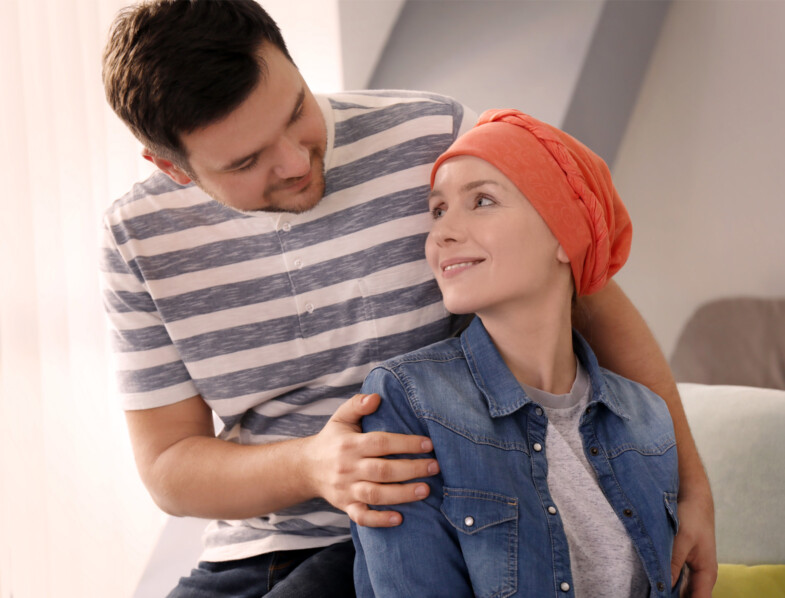After being told you have cancer, you may be experiencing a range of overwhelming emotions. We have put together some tips to help you manage the emotional side of a cancer diagnosis before, during, and after treatment.
1. Find out what to expect
Often, the initial emotions associated with a cancer diagnosis are uncertainty and worry about the future. Finding out the facts about your cancer and knowing how it is treated may help you feel more in control of the situation. Talk to your doctor about what the diagnosis means for you and what the future may hold.
2. Write down your thoughts
Organising your thoughts on paper can often be easier than trying to work everything out in your head. This may help slow down your thinking and improve your ability to focus.
3. Accept offers of help
Family and friends often offer help and if they do, take them up on it. You may have to let them know how they can help you. Some examples of how they can help include:
- Providing practical support, e.g. cooking meals, driving you to an appointment.
- Offering companionship.
- Keeping others informed.
- Getting you out and about.
You can use an app on your smartphone or computer, such as GatherMycrew. You can use GatherMycrew to coordinate a team of helpers (family and friends) to assist with a range of tasks that are part of daily living. This may include meals, grocery shopping, kids activities, transport, school lunches, household laundry, or walking the dog.
4. Join a cancer support group
Joining a cancer support group and speaking with others who are going through a similar experience may help to relieve tension and ease concerns. This can be particularly helpful if you feel unable to talk to those close to you.
There are different support groups available; these can be face-to-face, online or via telephone. To find one that’s right for you please contact our 13 11 20 Cancer Information and Support Line or visit cancer support groups.
5. Try exercise, relaxation or meditation to improve your mental wellbeing
Complementary therapies, such as relaxation, meditation, and art therapy, may help you feel more in control and help reduce side effects from medical treatment. They may also help manage difficult emotions and improve quality of life. To learn more, visit our exercise and meditative courses page.
6. Get a good night’s sleep
Sleep may help your body cope with the physical and emotional demands of cancer treatment. There are several things you can try to improve your sleeping pattern, such as:
- Having a warm bath before bed.
- Having a dark room.
- Avoiding looking at screens at bedtime.
- Avoiding caffeine, alcohol, chocolate, cola and energy drinks in the afternoon.
- Exercising regularly.
- Using relaxation practices.
7. Access counselling services
Counselling sessions allow you to express your emotions in a safe and supportive environment and learn new coping skills. They can provide an opportunity to talk about thoughts and feelings that you might not feel comfortable sharing with family and friends. You can call our 13 11 20 Cancer Information and Support Line to speak with one of the nurses about our counselling service.
8. Connect with other people who have had a similar cancer treatment
You may find it reassuring and encouraging to speak with others who have had a similar treatment. Cancer Connect is a free and confidential, one-on-one telephone peer support program run by Cancer Council Victoria. You can connect to a volunteer who has had a similar cancer and treatment to yourself. To find out more, visit our Cancer Connect page.
9. Recognise the little positives
Some days it might be hard to find something positive. This is understandable, but if you feel like that every day, check whether you are ignoring any little achievements or happy events. Some people make a habit of writing down three good things that have happened to them each day. These don’t have to be major life events – they could just be a nice chat with a receptionist on a tough day, or a day without any symptoms.
Remember to be kind to yourself, use encouraging thoughts to talk yourself through difficulties and seek professional help if you are struggling.
For more information
- Read more about emotional and physical wellbeing.
- Speak to one of our cancer nurses on 13 11 20.
